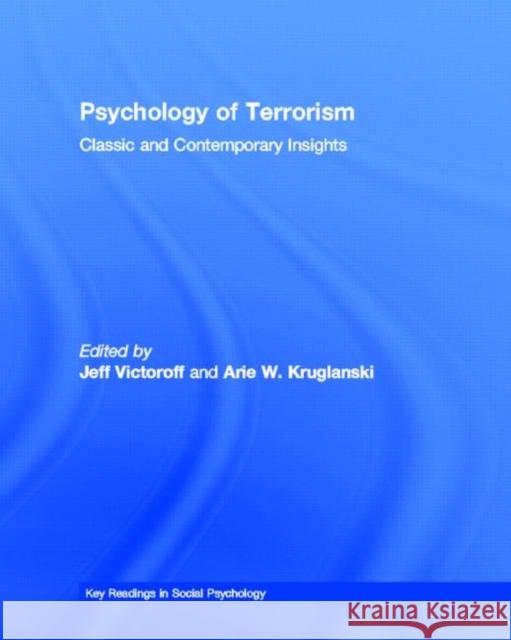Psychology of Terrorism: Classic and Contemporary Insights » książka
Psychology of Terrorism: Classic and Contemporary Insights
ISBN-13: 9781841694641 / Angielski / Twarda / 2009 / 512 str.
Psychology of Terrorism: Classic and Contemporary Insights
ISBN-13: 9781841694641 / Angielski / Twarda / 2009 / 512 str.
(netto: 718,58 VAT: 5%)
Najniższa cena z 30 dni: 654,86
ok. 16-18 dni roboczych.
Darmowa dostawa!
Psychology of Terrorism is a definitive collection of classic and contemporary writings about the mind of the terrorist. Selected by a panel of world-renowned authorities, this collection provides the reader with knowledge and insight into the ideas and influences of modern terrorist groups.
Substate terrorism now represents one of the gravest threats to human civilizations. As the frequency of interstate wars has declined since the end of WWII, terrible violence against innocent civilians is increasingly perpetrated by non-state groups with extreme agendas and virtually no restraints. Why do people become terrorists? Are terrorists crazy? Simply evil? Normal people driven to extremes? What social factors and tensions are most likely to provoke terrorist behaviors? And how can we use our rapidly growing understanding of the psychology of terrorism to anticipate the coming attacks and protect the international community?
Psychology of Terrorism is a definitive collection of the best classic and contemporary writings about the mind of the terrorist. Carefully selected by a panel of world-renowned authorities for value and readability, this exquisite collection provides the reader with deep knowledge and unique insights into the ideas, feelings, and social influences of modern terrorist groups. General readers who wish to understand this deadly phenomenon, students and scholars of human psychology or political science, and decision makers facing the challenge of designing effective counterterrorism policies will enjoy and profit from these essential readings and the inescapable conclusion they suggest: by ignoring the psychology of terrorism, Western nations have been making grave errors in the so-called war on terrorism. Understanding the deep roots of terrorist behaviors gives us tools that are absolutely vital to any effort in reducing this escalating threat.











